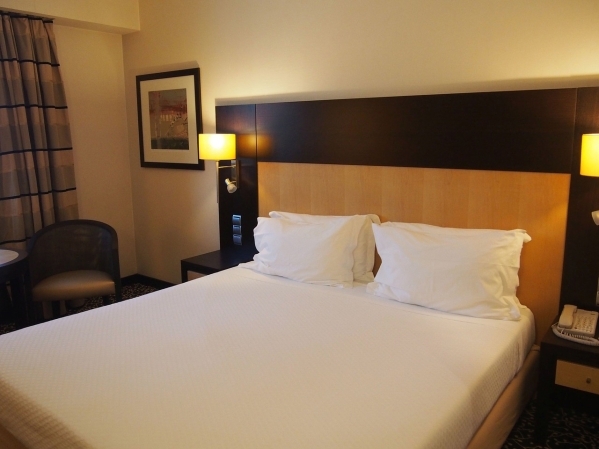How will you lower your travel footprint?
Last week I spent four days waiting standby for a flight from Tokyo to move back home to Las Vegas. Who knew summertime travel would equal overbooked flights, delays and crowds?
Well, most summer travelers know. Travel is a sore topic for me because it is an extremely carbon intensive activity. But, having family in two countries, I engage in this activity more than I would like to.
Doing the math
Our personal carbon emissions is a difficult concept to understand. The most recent data show the average CO2 emissions per person globally is 5 tons annually. That means, theoretically, every person on the globe emits 5 tons per year, and that is not sustainable.
Furthermore, some people emit more than others. Americans average nearly 17 tons.
I often use a carbon footprint calculator to see what my personal score is. With all the efforts I make to decrease my energy use, eat a plant-based diet, recycle, stay healthy, live a minimalist lifestyle and lower my consumption habits, my carbon score usually hovers close to 6 tons a year. But when I add just one flight to Japan, it nearly doubles my score. Yikes!
Although travel increases carbon footprints dramatically, this summer, many of us will still go on vacation, travel for business or visit relatives. As we leave our homes behind, let us look at ways we can decrease our damage both at home and away from home.
Planes, trains and automobiles
Buses and trains are a better forms of transportation, respectively, and can be a great way to see the countryside. This summer, however, 222 million travelers traveled by air between June and August. If you must fly, booking nonstop flights and using airlines that have green initiatives or airlines that fly the new 787s, which use 20 percent less fuel, will help decrease your emissions and some guilt.
Housing
Camping, staying with friends or house swapping are ideal. Many of us, however, will need to stay in hotels.
While working in Japan, I often stayed at a budget hotel chain that has many eco-friendly procedures in place. Room electricity is activated by keys, allowing for automatic savings when you leave the room. There is a $3 rebate for every day you refuse linen cleaning. Every morning, simple breakfast with food from that area is served, and water dispensers are provided in the lobby to fill up your reusable thermoses.
Keep in mind accessibility to public transportation when choosing your hotel. Also, many hotels offer environmental initiatives such as Green Seal or Audubon Green Leaf.
Treating hotel rooms like our homes can save energy. Reusing towels and linens more than one day, recycling trash and careful energy use within our rooms are all things that take little effort. Eating the local food is a sustainable action. Staying away from room service and take-out containers will decrease waste and energy use.
Before and after
Traveling light is not only energy efficient but also a plus to your health and mental condition on long travel days. My daughters and I used to travel together when they were little. One of them was an overpacker (not mentioning any names) and often got tired and frustrated carrying everything she packed.
Our motto became "you pack it, you carry it." Now we might add, "you pack it, you pay for it." Most airlines are charging more for baggage now. The more weight, the more energy it takes energy to move.
A couple items not to forget when packing are reusable water bottles, reusable shopping bags and Tupperware with healthy snacks. These can be reused for leftovers instead of styrofoam to-go containers.
Also, before leaving home for vacation, double check your thermostat settings, unplug everything not in use and turn off excess lighting.
The end of trips are always a vulnerable time, often ending up in compulsive shopping. Many travelers buy a variety of trinkets and gadgets to give away as souvenirs.
Before leaving Japan, I wanted to buy some authentic Japanese fans for my family. Upon careful observation I saw they were made in China. They were cheap, I'll say that, but considering the distance materials travel to be produced and transported, I realized something made from a local artist would be much more conscientious and memorable.
The better option is to really evaluate if we even need to shop at all. Is it useful and necessary, or will it just end up in our landfills? Maybe sharing stories or an activity or meal we learned about in our travels would be a better gift for our friends.
Finally, when packing up to head home, grab your unfinished hotel soaps and donate them to Clean the World in Las Vegas upon your return. You can spend one of your remaining lazy summer days with friends or family volunteering at the Clean the World's Valley View Boulevard location of. Check it out.
Staycation
The best vacation, however, is a staycation. Relaxing with friends and family at home and exploring nature around our amazing Southern Nevada is an ideal choice. Check out staycation ideas at reviewjournal.com/travel/staycations.
Treating our temporary homes away from home as if they were our own homes, choosing low-carbon transportation and thoughtful planning can help reduce our carbon footprint. There are many low-carbon or zero-carbon ways to enjoy the summer.
Reading a book in your backyard or enjoying healthy local meals with friends and family can be just as relaxing and memorable. Most important, however, is the change in our behavior and mindset. Here's to a low-carbon, relaxing summer.
— Mary Beth Horiai has split her adult life between Japan and Southern Nevada. In Las Vegas, Horiai worked for the nonprofit U.S. Green Building Council of Nevada. A graduate of UNLV, she was trained as a speaker for The Climate Reality Project.

















